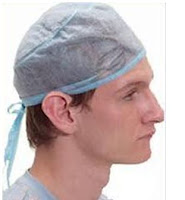Almost every day over the last few years, someone has written about physician burnout or depression.
The problems begin in medical school. A recent
paper featured drawings that medical students had done depicting faculty as monsters. One student felt so intimidated during a teaching session that she drew a picture of her urinating herself.
The paper equated faculty and residents supervising students to “zombies, vampires, ghosts, and other supernatural figures.” In dealing with the state of the world today, the authors cited a comment by the novelist Stephen King saying that to cope with adversity, people make up horror stories. That sounds pretty serious.
Could the problem be declining student resilience? An
article about college students in Psychology Today pointed out that they are less able to deal with seemingly minor affronts. And teachers are reluctant to “give low grades for poor performance, because of the subsequent emotional crises they would have to deal with in their offices.”
This has forced faculty “do more handholding, lower their academic standards, and not challenge students too much.” The article pointed out that college students exhibit more anxiety and depression and take more prescription drugs for these problems than ever before.
It’s not just students.
A systematic
review of 54 studies found that 29% of resident physicians were depressed or had depressive symptoms. The number ranged from 20.9% to 43.2%, depending on the method studies used to assess depression.
Investigators from the
Mayo Clinic and the AMA found that more than 50% of practicing physicians surveyed exhibit symptoms of burnout, and the problem has worsened since 2011. Depression and suicidal thoughts are also common.
All of these studies have been covered extensively by media such as the Washington Post, NPR, Time Magazine, Forbes, among many others and were widely discussed on Twitter.
Here’s a thought. What about “emotional contagion,” the subject of a 2014
paper published in PNAS? The authors studied 689,000 Facebook users and found that negative emotions can be transferred from one person to another without direct contact. They concluded, “…emotions expressed by others on Facebook influence our own emotions, constituting experimental evidence for massive-scale contagion via social networks.” If emotional contagion has such an impact on Facebook users, maybe all these stories about burnout and depression have an impact on students and doctors too.
There is certainly much to be depressed about in medicine—stress, declining reimbursements, soul-sucking electronic medical records, long hours, arbitrary rules, and much more.
Could it be that the more stories written about burnout and depression, the more burned out and depressed doctors become?





